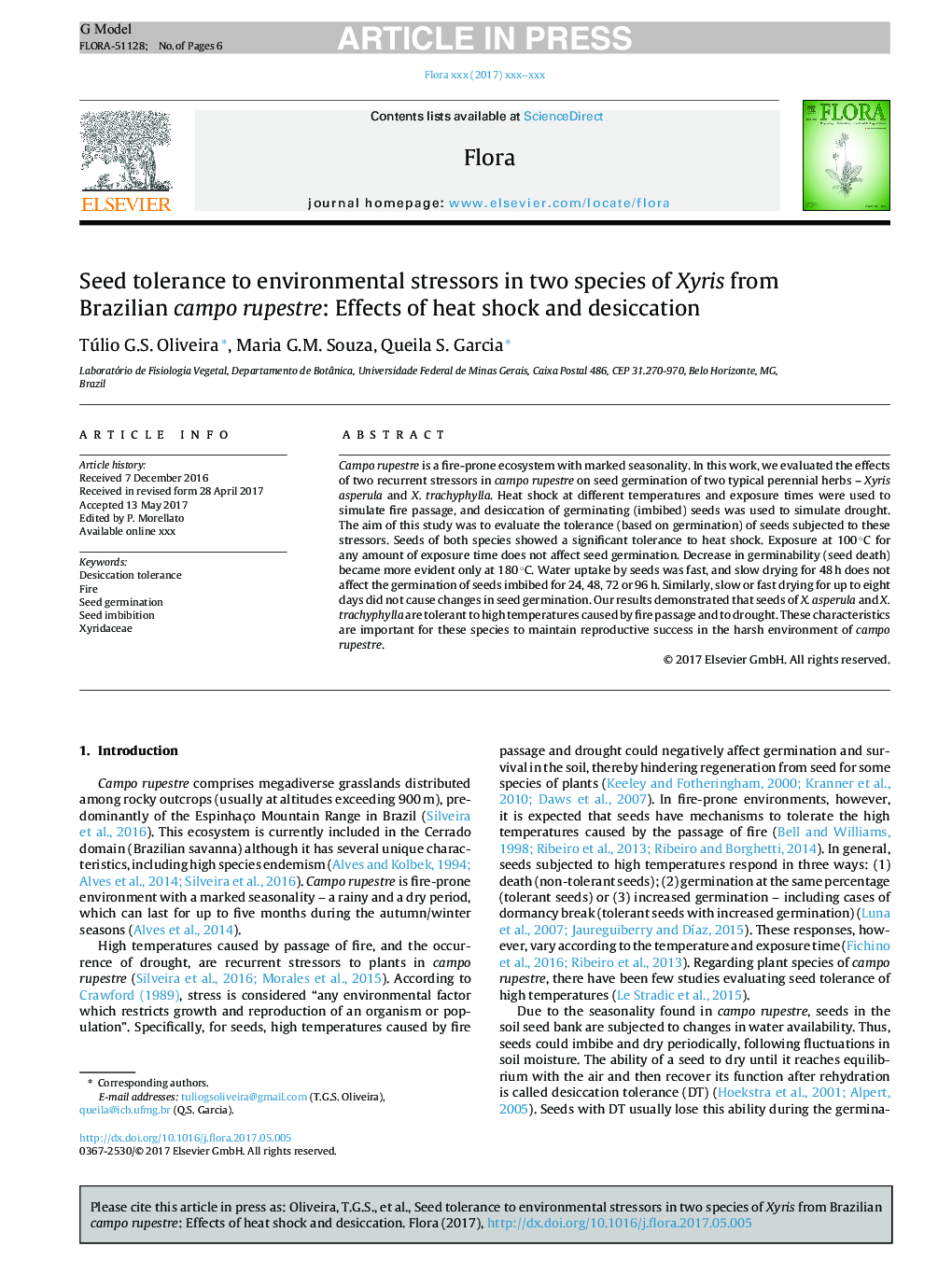| Article ID | Journal | Published Year | Pages | File Type |
|---|---|---|---|---|
| 8470239 | Flora - Morphology, Distribution, Functional Ecology of Plants | 2018 | 6 Pages |
Abstract
Campo rupestre is a fire-prone ecosystem with marked seasonality. In this work, we evaluated the effects of two recurrent stressors in campo rupestre on seed germination of two typical perennial herbs - Xyris asperula and X. trachyphylla. Heat shock at different temperatures and exposure times were used to simulate fire passage, and desiccation of germinating (imbibed) seeds was used to simulate drought. The aim of this study was to evaluate the tolerance (based on germination) of seeds subjected to these stressors. Seeds of both species showed a significant tolerance to heat shock. Exposure at 100 °C for any amount of exposure time does not affect seed germination. Decrease in germinability (seed death) became more evident only at 180 °C. Water uptake by seeds was fast, and slow drying for 48 h does not affect the germination of seeds imbibed for 24, 48, 72 or 96 h. Similarly, slow or fast drying for up to eight days did not cause changes in seed germination. Our results demonstrated that seeds of X. asperula and X. trachyphylla are tolerant to high temperatures caused by fire passage and to drought. These characteristics are important for these species to maintain reproductive success in the harsh environment of campo rupestre.
Related Topics
Life Sciences
Agricultural and Biological Sciences
Ecology, Evolution, Behavior and Systematics
Authors
Túlio G.S. Oliveira, Maria G.M. Souza, Queila S. Garcia,
